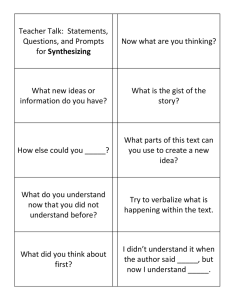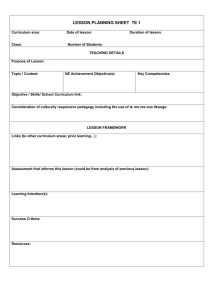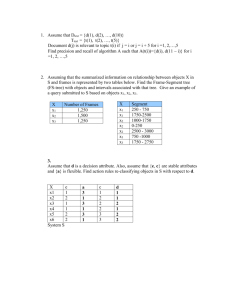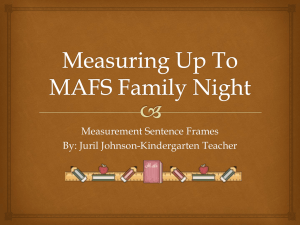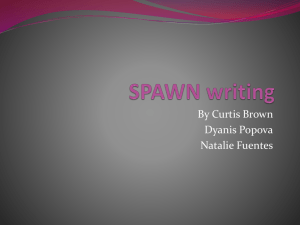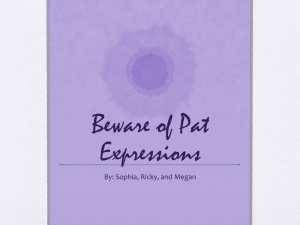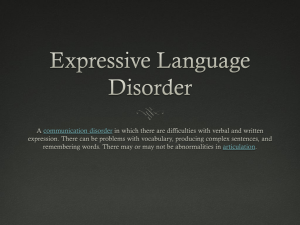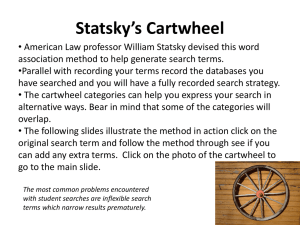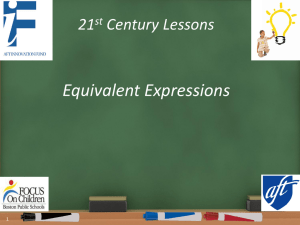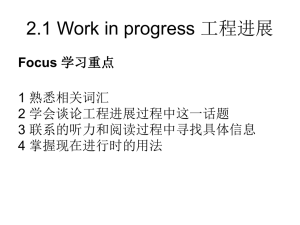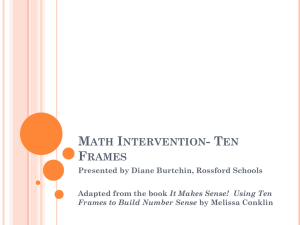Lesson Planning With Language in Mind
advertisement
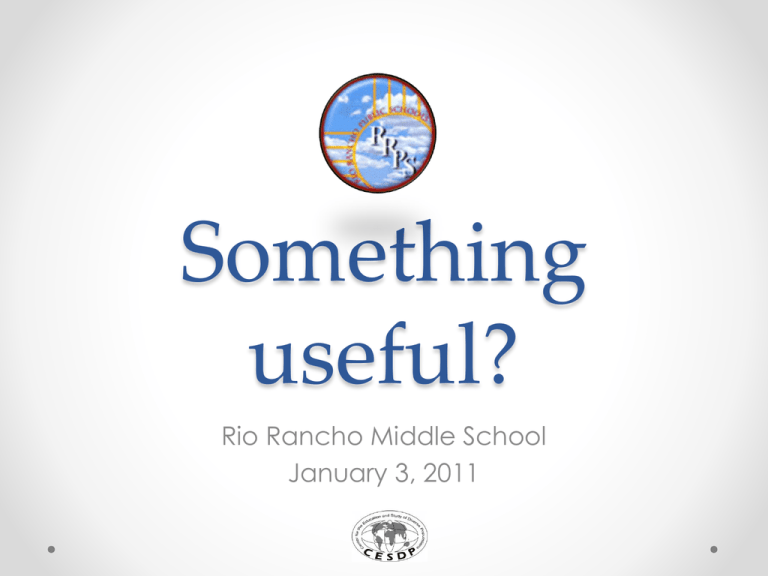
Something useful? Rio Rancho Middle School January 3, 2011 Lesson planning? • Create a lesson plan for a lesson you will deliver this week. (10 Minutes) A Typical Lesson Plan begins with a … Focus: Objectives Aligned to Standards 3 A Typical Lesson Plan Includes … Instruction: Give the students the tools and foundation to reach the day’s goal. 4 A Typical Lesson Plan Includes … Guided Practice: Give students the opportunity to practice the new concepts. 5 A Typical Lesson Plan Includes… Independent Practice: Allow students the opportunity to practice concepts on their own. 6 A Typical Lesson Plan Includes … Closure/Assessment/Evaluation • • • • How did they do? How did you do? How do you know? How will this affect what you do tomorrow? 7 Is there anything else? • What have our adopted strategies, data and our own students told us about our lesson preparation? • Have any of the above changed our practice? How have some of our colleagues responded to this question? In this case, a Typical Lesson Plan begins with a … Focus: Content Objectives Language Objectives Aligned to Standards 16 A Typical Lesson Plan Includes … Instruction: Through the lens of the language demands of the content. Student Centered • Prior Knowledge • Building of Background Knowledge Frontloading, Scaffolding, Sheltering • Bricks • Mortar 17 A Typical Lesson Plan Includes … Guided Practice: Reading Listening Writing Formative Assessment Opportunities (Informal and Formal) Speaking Opportunity for Interaction: Enhancing Academic Language Discourse Sheltered & Rigorous 18 A Typical Lesson Plan Includes… Independent Practice: Reading Listening Writing Speaking Formative Assessment Opportunities (Informal and Formal) Sheltered & Rigorous 19 How about some strategies to support these concepts? • Academic Language Frames o Can be used to teach the skills of analyzing, comparing, categorizing and classifying, problem solving, persuading, empathizing, synthesizing, interpreting, evaluating, and applying. How about some strategies? • Be explicit! o Become familiar with theses terms, and point them out when you or your students use them in discussion and or written tasks. How about some strategies? • Be explicit! o Model how to effectively use academic language and provide opportunities for students to use the expressions, prompts, and frames in the classroom while interacting in large or small group settings. o Daily cue cards??? How about some strategies? Academic Language Expressions, Prompts and Frames for Synthesizing Common expressions used when synthesizing include: ● In a nutshell it means that… ● Other sources also argue that… ● It all boils down to… ● Even though it seems that the text is about… I think that… ● The author is essentially saying… ● If we think about all the issues we come up with… ● One source is not enough to make such a decision. ● Upon gathering all the facts we can conclude that… ● The elements (parts) are related in the following ways… ● When we pull all the pieces together, we see that… ● Its most important traits are… ● If history is any indication, then… ● Which research supported that? ● There is more than one way to approach this issue. How about some strategies? Following are prompts that encourage students to synthesize when speaking or writing: ● Write a journal entry from the perspective of… ● Create a sculpture that relates to… ● Design a greeting card for…to send… ● Write a letter of appreciation to a historical figure. ● Construct a modern folktale about… ● Create a song or poem expressing your feelings about… ● Compose a short story from the point of view of a… ● Create a proposal with different alternatives for making a major change in your community. Lesson Planning! • Let’s revisit our lesson plans and add some pieces that weren’t there before. • Consider how the expressions, prompts and frames may be introduced ultimately owned by them as well. Thank you! Adrian Sandoval aisandoval@cesdp.nmhu.edu Phone: 505-243-4442 Center for the Education and Study of Diverse Populations at New Mexico Highlands University 26
